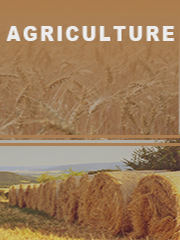Sisal fibers are made of 65% cellulose, 12% Hemicellulose, 9.9% Lignin, and 2% Waxes. Sisal fibers can be available as plaid, herringbone, or twill. The fibers have good sound and impact absorbing properties. They have natural anti-static properties that do not trap dust or absorb moisture easily. The original plain color allows it to easily be dyed and allow for a large range of different color. Sisal twine is also naturally biodegradable.
This report aims to provide a comprehensive presentation of the global market for Sisal Twine, with both quantitative and qualitative analysis, to help readers develop business/growth strategies, assess the market competitive situation, analyze their position in the current marketplace, and make informed business decisions regarding Sisal Twine. This report contains market size and forecasts of Sisal Twine in global, including the following market information:
- Global Sisal Twine Market Revenue, 2018-2023, 2024-2030, ($ millions)
- Global Sisal Twine Market Sales, 2018-2023, 2024-2030, (MT)
- Global top five Sisal Twine companies in 2022 (%)
The global Sisal Twine market was valued at US$ million in 2022 and is projected to reach US$ million by 2029, at a CAGR of % during the forecast period. The influence of COVID-19 and the Russia-Ukraine War were considered while estimating market sizes.
The U.S. Market is Estimated at $ Million in 2022, While China is Forecast to Reach $ Million.
Natural Form (Unoiled) Segment to Reach $ Million by 2029, with a % CAGR in next six years.
The global key manufacturers of Sisal Twine include Cordexagri, Percam S.A., Amjay Ropes & Twines, Henry Winning & Company, Asia Dragon Cord & Twine and Bristol Rope & Twine, etc. in 2022, the global top five players have a share approximately % in terms of revenue.
We surveyed the Sisal Twine manufacturers, suppliers, distributors and industry experts on this industry, involving the sales, revenue, demand, price change, product type, recent development and plan, industry trends, drivers, challenges, obstacles, and potential risks.
Total Market by Segment:
Global Sisal Twine Market, by Type, 2018-2023, 2024-2030 ($ Millions) & (MT)
Global Sisal Twine Market Segment Percentages, by Type, 2022 (%)
- Natural Form (Unoiled)
- Treated (Oiled)
Global Sisal Twine Market, by Application, 2018-2023, 2024-2030 ($ Millions) & (MT)
Global Sisal Twine Market Segment Percentages, by Application, 2022 (%)
- Agriculture
- Packaging
- Others
Global Sisal Twine Market, By Region and Country, 2018-2023, 2024-2030 ($ Millions) & (MT)
Global Sisal Twine Market Segment Percentages, By Region and Country, 2022 (%)
- North America
- US
- Canada
- Mexico
- Europe
- Germany
- France
- U.K.
- Italy
- Russia
- Nordic Countries
- Benelux
- Rest of Europe
- Asia
- China
- Japan
- South Korea
- Southeast Asia
- India
- Rest of Asia
- South America
- Brazil
- Argentina
- Rest of South America
- Middle East & Africa
- Turkey
- Israel
- Saudi Arabia
- UAE
- Rest of Middle East & Africa
Competitor Analysis
The report also provides analysis of leading market participants including:
- Key companies Sisal Twine revenues in global market, 2018-2023 (Estimated), ($ millions)
- Key companies Sisal Twine revenues share in global market, 2022 (%)
- Key companies Sisal Twine sales in global market, 2018-2023 (Estimated), (MT)
- Key companies Sisal Twine sales share in global market, 2022 (%)
Further, the report presents profiles of competitors in the market, key players include:
- Cordexagri
- Percam S.A.
- Amjay Ropes & Twines
- Henry Winning & Company
- Asia Dragon Cord & Twine
- Bristol Rope & Twine
Outline of Major Chapters:
Chapter 1: Introduces the definition of Sisal Twine, market overview.
Chapter 2: Global Sisal Twine market size in revenue and volume.
Chapter 3: Detailed analysis of Sisal Twine manufacturers competitive landscape, price, sales and revenue market share, latest development plan, merger, and acquisition information, etc.
Chapter 4: Provides the analysis of various market segments by type, covering the market size and development potential of each market segment, to help readers find the blue ocean market in different market segments.
Chapter 5: Provides the analysis of various market segments by application, covering the market size and development potential of each market segment, to help readers find the blue ocean market in different downstream markets.
Chapter 6: Sales of Sisal Twine in regional level and country level. It provides a quantitative analysis of the market size and development potential of each region and its main countries and introduces the market development, future development prospects, market space of each country in the world.
Chapter 7: Provides profiles of key players, introducing the basic situation of the main companies in the market in detail, including product sales, revenue, price, gross margin, product introduction, recent development, etc.
Chapter 8: Global Sisal Twine capacity by region & country.
Chapter 9: Introduces the market dynamics, latest developments of the market, the driving factors and restrictive factors of the market, the challenges and risks faced by manufacturers in the industry, and the analysis of relevant policies in the industry.
Chapter 10: Analysis of industrial chain, including the upstream and downstream of the industry.
Chapter 11: The main points and conclusions of the report.
